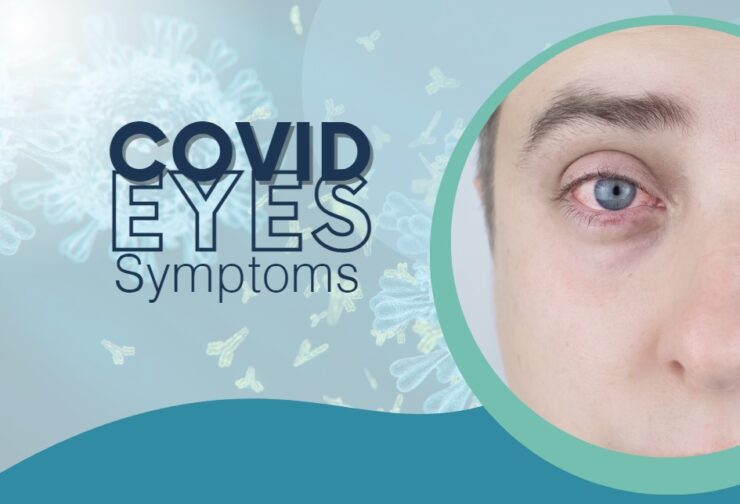In a world changed by the COVID-19 pandemic, we have become all too familiar with the tell-tale signs of the novel coronavirus: fever, cough, and shortness of breath. But did you know that COVID-19 can also affect your eyes? This lesser-known aspect of the virus has been termed “COVID Eyes.”
In this blog post, we will delve into the world of COVID Eyes, exploring symptoms, treatment options, and ways to protect yourself and your loved ones. So, whether you are an eye care professional, a concerned citizen, or someone experiencing eye-related symptoms, this comprehensive guide will provide you with the information you need to navigate these uncharted waters.
The Eyes as a Window to COVID-19
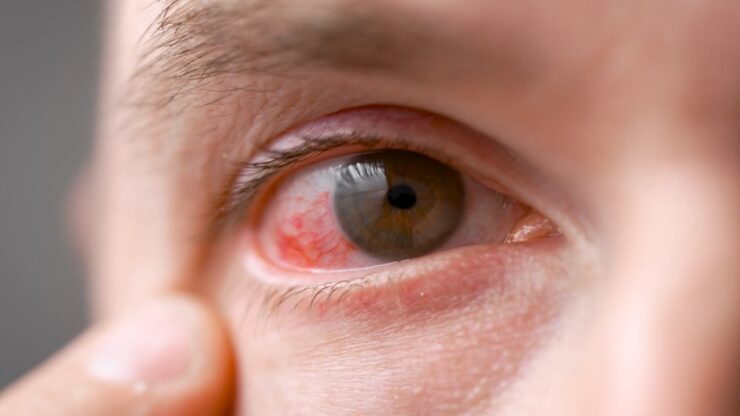
Though COVID-19 is primarily a respiratory illness, it can also cause ocular symptoms, which may be the first signs of infection. The virus enters the body through ACE2 receptors, which are present not only in the respiratory system but also in the eyes. These receptors are found in the cornea, the clear outer layer of the eye, and the conjunctiva, the thin, transparent tissue covering the front of the eye and the inner surface of the eyelids. When the virus binds to these receptors, it can cause inflammation and various eye-related symptoms.
Prevalence of Ocular Symptoms
While ocular symptoms are less common than respiratory symptoms in COVID-19 patients, they still occur in a significant number of cases. A meta-analysis published in the journal Graefe’s Archive for Clinical and Experimental Ophthalmology found that approximately 11.6% of COVID-19 patients experienced eye-related symptoms. Another study published in JAMA Ophthalmology revealed that around 30% of patients with severe COVID-19 infections had ocular abnormalities.
Recognizing the Symptoms
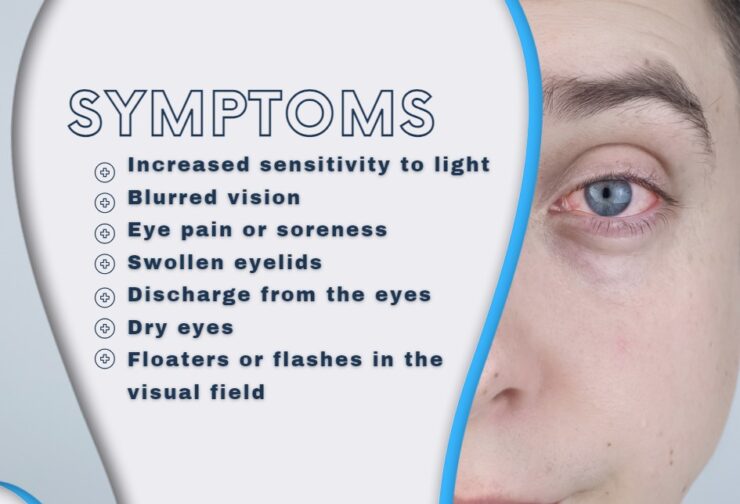
The most common ocular symptom associated with COVID-19 is conjunctivitis, or pink eye, which is characterized by redness, itching, and tearing. Other symptoms include:
- Increased sensitivity to light (photophobia)
- Blurred vision
- Eye pain or soreness
- Swollen eyelids
- Discharge from the eyes
- Dry eyes
- Floaters or flashes in the visual field
When to Seek Medical Attention
If you experience any of the above symptoms, especially if they are accompanied by fever, cough, or other COVID-19 symptoms, it is important to seek medical advice. Early detection and treatment can help minimize complications and reduce the risk of spreading the virus to others. However, remember that these symptoms can also be caused by other conditions, so it is essential to consult with a healthcare professional for an accurate diagnosis.
Treatment and Management of COVID Eyes
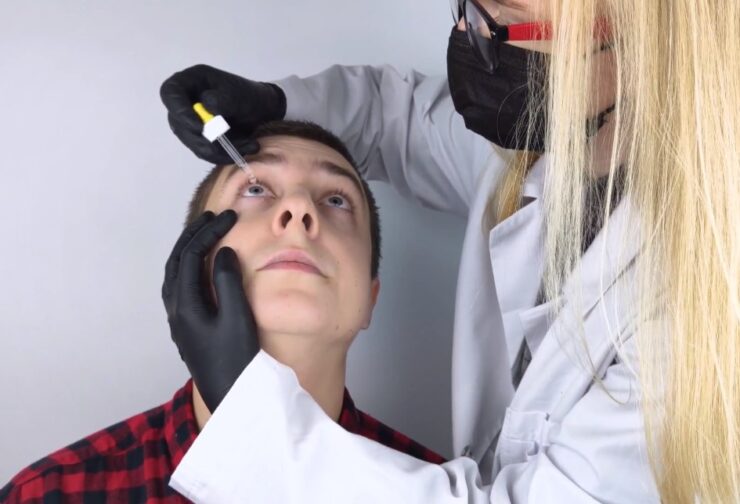
Treatment for COVID Eyes primarily focuses on managing symptoms and providing relief. While there is no specific antiviral treatment for ocular manifestations of COVID-19, the following general guidelines can help alleviate discomfort:
- Use artificial tears or lubricating eye drops to soothe dry or irritated eyes.
- Apply a warm compress to the eyes to reduce swelling and inflammation.
- Avoid rubbing your eyes, as this can worsen the irritation and increase the risk of infection.
- Maintain good eye hygiene by regularly cleaning your eyelids and the area around your eyes with a gentle, non-abrasive cleanser.
- Wear sunglasses to protect your eyes from sunlight and reduce light sensitivity.
Treatment for Conjunctivitis
For COVID-related conjunctivitis, the following treatment options may be recommended by your healthcare provider:
- Over-the-counter (OTC) antihistamine or decongestant eye drops to alleviate redness and itching.
- Prescription antibiotic eye drops or ointment for bacterial conjunctivitis.
- Cool or warm compresses to help reduce inflammation and soothe the eyes.
- Avoid using contact lenses until the infection has cleared.
Note that viral conjunctivitis, which is the most common type associated with COVID-19, typically resolves on its own within one to two weeks. However, it is crucial to follow your healthcare provider’s advice and complete any prescribed treatment course to prevent complications and minimize the risk of spreading the infection.
Prevention and Eye Care During the Pandemic
Protecting your eyes from COVID-19 involves the same preventive measures recommended for reducing the risk of respiratory infections:
- Wash your hands frequently and thoroughly with soap and water for at least 20 seconds.
- Avoid touching your face, especially your eyes, nose, and mouth.
- Practice social distancing by staying at least six feet away from others.
- Wear a mask in public settings where social distancing measures are challenging to maintain.
Eye Care Tips for Contact Lens Wearers
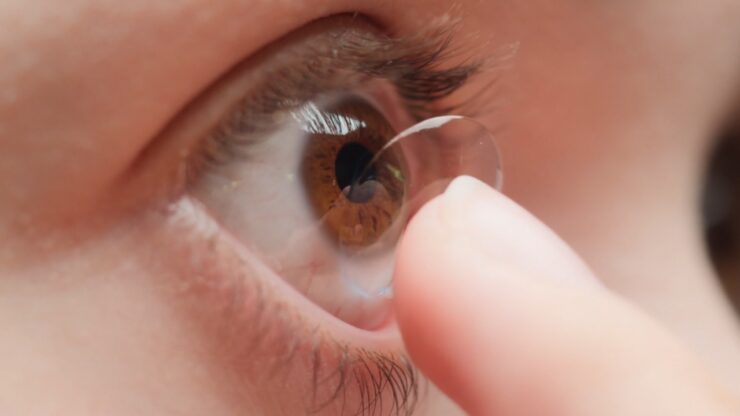
Contact lens wearers should follow these additional precautions to protect their eyes during the pandemic:
- Always wash your hands before handling contact lenses.
- Disinfect your contact lenses regularly using the recommended cleaning solution.
- Replace your contact lens case every three months or as directed by your eye care professional.
Avoid wearing contact lenses if you have any eye-related symptoms or if you have been diagnosed with COVID-19. Instead, opt for glasses until your symptoms have resolved and your healthcare provider has cleared you to resume wearing contacts.
Protecting Your Eyes at Work
For those working in healthcare or other high-risk settings, additional measures may be necessary to protect your eyes from COVID-19 exposure: Wear protective eyewear, such as goggles or a face shield, in addition to a mask and gloves. Ensure that your protective eyewear fits securely and comfortably to minimize the need for adjustments. Clean and disinfect your protective eyewear regularly according to the manufacturer’s instructions.
Tips for preventing the spread of COVID-19
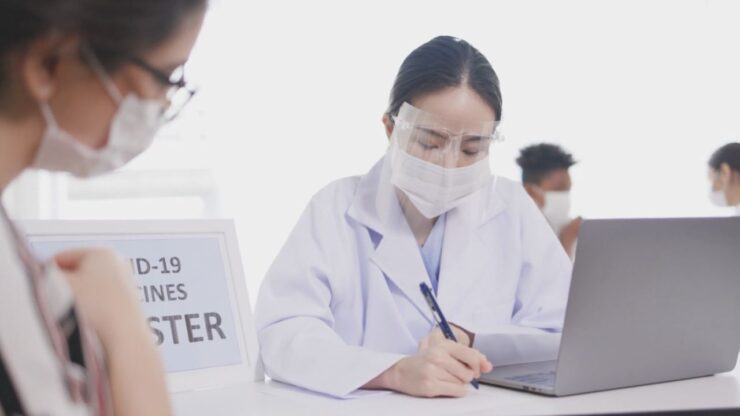
One of the most important steps to preventing it is to take measures to prevent the spread of COVID-19. This includes wearing a mask, practicing social distancing, and frequently washing your hands with soap and water or using hand sanitizer. It is also important to avoid touching your face and to stay home if you feel sick.
In addition, taking care of your overall health can also help reduce the risk of developing it. This includes getting plenty of rest, eating a healthy diet, staying hydrated, and managing stress. Engaging in regular exercise can also help boost your immune system and reduce the risk of developing complications from the virus.
Finally, if you are experiencing any symptoms of the virus or have been in close contact with someone who has tested positive for the virus, it is important to get tested and follow the guidelines provided by your healthcare provider or local health department. By taking these steps, you can help protect yourself and others from the spread of the virus and reduce the risk of developing COVID Eyes.
FAQs
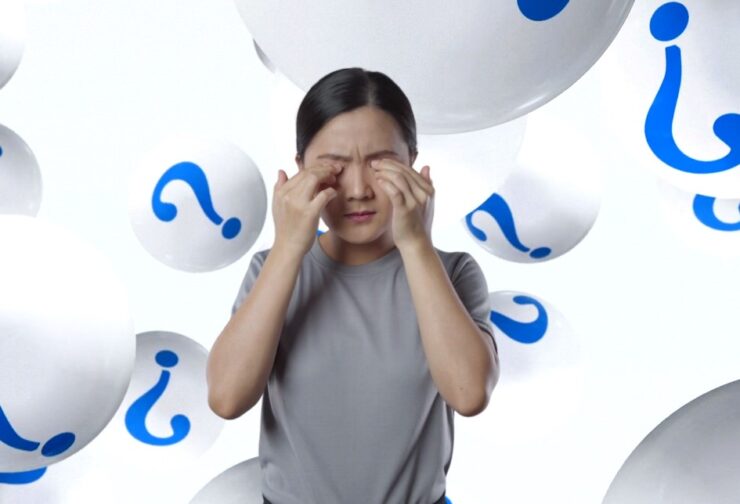
Can children develop COVID Eyes?
Yes, children can develop COVID Eyes. The ocular symptoms are similar to those experienced by adults, including conjunctivitis, redness, itching, and tearing. If your child shows any eye-related symptoms, consult a healthcare professional for proper diagnosis and treatment.
How long do ocular symptoms relate to COVID-19 last?
The duration of ocular symptoms varies from person to person. In most cases, viral conjunctivitis associated with COVID-19 resolves on its own within one to two weeks. However, it is essential to follow your healthcare provider’s advice and complete any prescribed treatment course to prevent complications and minimize the risk of spreading the infection.
Can I still get vaccinated if I have COVID Eyes?
It is generally safe to receive a COVID-19 vaccine if you have mild ocular symptoms. However, if you are experiencing severe symptoms, have a high fever, or are feeling unwell, it may be best to postpone your vaccination until you have recovered. Consult with your healthcare provider for guidance on the appropriate course of action.
Should I stop wearing contact lenses if I have COVID Eyes?
If you experience eye-related symptoms or have been diagnosed with COVID-19, it is recommended to avoid wearing contact lenses until the infection has cleared and your healthcare provider has given you the go-ahead to resume wearing contacts. In the meantime, wear glasses as an alternative.
Can wearing glasses protect me from COVID-19?
While glasses can provide a limited barrier against respiratory droplets that may contain the virus, they are not a substitute for masks, hand hygiene, and social distancing measures. However, glasses can help reduce the risk of touching your eyes, which may lower the chance of infection.
Conclusion
As we continue to navigate the COVID-19 pandemic, it is essential to remain vigilant about our eye health. By understanding the symptoms of COVID Eyes, seeking timely medical attention when necessary, and following preventive measures, we can minimize the impact of this virus on our vision and overall well-being. Stay informed, stay safe, and keep an eye out for your ocular health.

